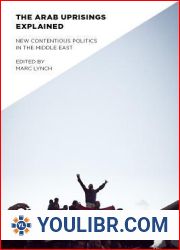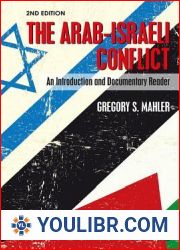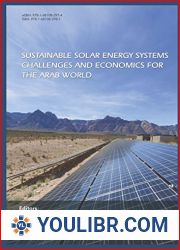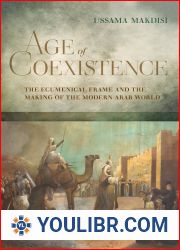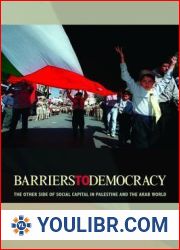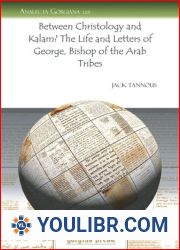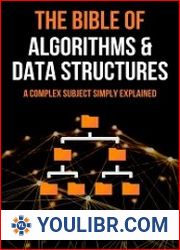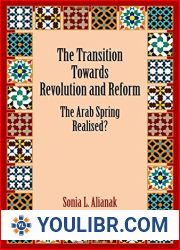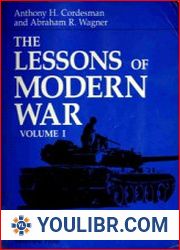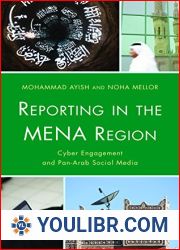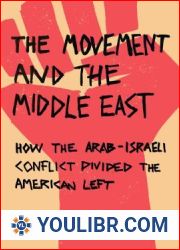
BOOKS - The Arab Uprisings Explained: New Contentious Politics in the Middle East (Co...

The Arab Uprisings Explained: New Contentious Politics in the Middle East (Columbia Studies in Middle East Politics)
Author: Marc Lynch
Year: August 5, 2014
Format: PDF
File size: PDF 1.4 MB
Language: English

Year: August 5, 2014
Format: PDF
File size: PDF 1.4 MB
Language: English

The Arab Uprisings Explained: New Contentious Politics in the Middle East (Columbia Studies in Middle East Politics) Introduction: The Arab uprisings that began in 2010 and continued until 2012 were a series of popular protests and revolutions that swept across the Middle East and North Africa, leaving no country untouched. These uprisings were sparked by the self-immolation of Mohammed Bouazizi, a Tunisian street vendor who set himself on fire to protest police corruption and brutality. The protests quickly spread to other countries, including Egypt, Libya, Bahrain, Yemen, Syria, and Jordan, among others. The uprisings were driven by a variety of factors, including economic hardship, political repression, and social inequality, and they had far-reaching consequences for the region's political landscape. In "The Arab Uprisings Explained: New Contentious Politics in the Middle East leading scholars in the field examine the causes, dynamics, and effects of these uprisings, offering a fresh perspective on this pivotal moment in Middle Eastern history. The book challenges established theories and presents a new framework for understanding the events that are remaking the region.
The Arab Uprisings Explained: New Conflict Politics in the Middle East (Columbia Studies in Middle East Politics) Введение: Арабские восстания, начавшиеся в 2010 году и продолжавшиеся до 2012 года, были серией народных протестов и революций, прокатившихся по Ближнему Востоку и Северной Африке, в результате чего ни одна страна не осталась нетронутой. Эти восстания были вызваны самосожжением Мохаммеда Буазизи, тунисского уличного торговца, который поджег себя в знак протеста против коррупции и жестокости полиции. Протесты быстро распространились на другие страны, включая Египет, Ливию, Бахрейн, Йемен, Сирию и Иорданию. Восстания были вызваны различными факторами, включая экономические трудности, политические репрессии и социальное неравенство, и они имели далеко идущие последствия для политического ландшафта региона. В книге «Арабские восстания объясняются: новая спорная политика на Ближнем Востоке» ведущие ученые в этой области исследуют причины, динамику и последствия этих восстаний, предлагая новый взгляд на этот ключевой момент в истории Ближнего Востока. Книга бросает вызов устоявшимся теориям и представляет новую основу для понимания событий, которые переделывают регион.
The Arab Uprisings Exploré : New Conflict Politics in the Middle East (Columbia Studies in Middle East Politics) Introduction : s soulèvements arabes, qui ont commencé en 2010 et se sont poursuivis jusqu'en 2012, ont été une série de manifestations populaires et de révolutions, ceux qui ont parcouru le Moyen-Orient et l'Afrique du Nord, de sorte qu'aucun pays n'est resté intact. Ces soulèvements ont été provoqués par l'auto-immolation de Mohammed Bouazizi, un vendeur de rue tunisien qui s'est immolé pour protester contre la corruption et la brutalité policière. s manifestations se sont rapidement étendues à d'autres pays, dont l'Egypte, la Libye, Bahreïn, le Yémen, la Syrie et la Jordanie. s soulèvements ont été provoqués par divers facteurs, notamment les difficultés économiques, la répression politique et les inégalités sociales, et ils ont eu des conséquences considérables sur le paysage politique de la région. livre « s soulèvements arabes expliquent : une nouvelle politique controversée au Moyen-Orient » explore les causes, la dynamique et les conséquences de ces soulèvements en proposant une nouvelle vision de ce moment clé de l'histoire du Moyen-Orient. livre remet en question les théories établies et présente une nouvelle base pour comprendre les événements qui refont la région.
The Arab Uprisings Explorado: New Conflict Politics in the Middle East (Columbia Studies in Middle East Politics) Introducción: revueltas árabes que comenzaron en 2010 y continuaron hasta 2012, fueron una serie de protestas populares y revoluciones que se extendieron por Oriente Medio y el norte de África, haciendo que ningún país permaneciera intacto. Estos levantamientos fueron provocados por el autoinmolamiento de Mohammed Bouazizi, un vendedor callejero tunecino que se prendió fuego para protestar contra la corrupción y la brutalidad policial. protestas se extendieron rápidamente a otros países, entre ellos Egipto, Libia, Bahrein, Yemen, ria y Jordania. revueltas fueron causadas por diversos factores, entre ellos las dificultades económicas, la represión política y la desigualdad social, y tuvieron consecuencias de largo alcance en el panorama político de la región. En el libro « revueltas árabes se explican: una nueva política controvertida en Oriente Medio», los principales estudiosos de este campo investigan las causas, dinámicas y consecuencias de estas revueltas, ofreciendo una nueva visión de este momento clave en la historia de Oriente Medio. libro desafía las teorías establecidas y presenta una nueva base para entender los acontecimientos que rehacen la región.
The Abe Uprisings Explored: New Collict Politics in the Middle East East (Columbia Studies in Middle East Politics) Introdução: As revoltas árabes, que começaram em 2010 e duraram até 2012, foram uma série de protestos e revoluções populares O Oriente Médio e o norte da África, o que não deixou nenhum país intacto. Estas revoltas foram causadas pela autodeclaração de Mohammed Bouazisi, um comerciante de rua tunisiano que ateou fogo a si mesmo para protestar contra a corrupção e a brutalidade da polícia. Os protestos se espalharam rapidamente para outros países, incluindo Egito, Líbia, Bahrein, Iêmen, Síria e Jordânia. As revoltas foram causadas por vários fatores, incluindo dificuldades econômicas, repressão política e desigualdade social, e tiveram consequências de longo alcance na paisagem política da região. O livro «As Revoltas Árabes: Uma Nova Política Controversa no Oriente Médio» está a investigar as causas, a dinâmica e as consequências dessas revoltas, oferecendo uma nova visão deste momento crucial na história do Oriente Médio. O livro desafia teorias estabelecidas e apresenta uma nova base para a compreensão dos acontecimentos que remodelam a região.
Columbia Studies in Middle East Politics Introduzione: insurrezioni arabe, iniziate nel 2010 e proseguite fino al 2012, sono state una serie di proteste popolari e di rivoluzioni che si sono susseguite Il Medio Oriente e il Nord Africa, con il risultato che nessun paese è rimasto intatto. Queste rivolte sono dovute all'autodenuncia di Mohammed Bouazizi, un venditore di strada tunisino che si è dato fuoco per protestare contro la corruzione e la brutalità della polizia. proteste si sono rapidamente estese ad altri paesi, tra cui Egitto, Libia, Bahrain, Yemen, ria e Giordania. rivolte sono state causate da vari fattori, tra cui le difficoltà economiche, la repressione politica e le disuguaglianze sociali, e hanno avuto conseguenze di grande portata sul panorama politico della regione. Nel libro « rivolte arabe» si spiegano le nuove politiche controverse in Medio Oriente, i più importanti studiosi in questo campo stanno esplorando le cause, le dinamiche e le conseguenze di queste rivolte, offrendo una nuova prospettiva di questo momento chiave nella storia del Medio Oriente. Il libro sfida le teorie stabilite e rappresenta una nuova base per comprendere gli eventi che stanno trasformando la regione.
The Arab Uprisings Explained: New Conflict Politics in the Middle East (Columbia Studies in Middle East Politics) Einleitung: Die arabischen Aufstände, die 2010 begannen und bis 2012 andauerten, waren eine Reihe von Volksprotesten und Revolutionen, die durch den Nahen Osten fegten und Nordafrika, wobei kein Land unberührt blieb. Diese Aufstände wurden durch die Selbstverbrennung von Mohammed Bouazizi ausgelöst, einem tunesischen Straßenverkäufer, der sich aus Protest gegen Korruption und Polizeibrutalität selbst in Brand setzte. Die Proteste breiteten sich schnell auf andere Länder aus, darunter Ägypten, Libyen, Bahrain, Jemen, Syrien und Jordanien. Die Aufstände wurden durch verschiedene Faktoren ausgelöst, darunter wirtschaftliche Schwierigkeiten, politische Unterdrückung und soziale Ungleichheit, und hatten weitreichende Auswirkungen auf die politische Landschaft der Region. Das Buch Arabische Aufstände erklärt: Eine neue umstrittene Politik im Nahen Osten untersucht die Ursachen, Dynamiken und Auswirkungen dieser Aufstände und bietet eine neue Perspektive auf diesen Schlüsselmoment in der Geschichte des Nahen Ostens. Das Buch stellt etablierte Theorien in Frage und stellt eine neue Grundlage für das Verständnis der Ereignisse dar, die die Region neu gestalten.
''
Açıklanan Arap Ayaklanmaları: Orta Doğu'da Yeni Çatışma Politikaları (Columbia Studies in Middle East Politics) Giriş: 2010'da başlayan ve 2012'ye kadar süren Arap ayaklanmaları, Orta Doğu ve Kuzey Afrika'yı kasıp kavuran ve hiçbir ülkeyi dokunulmaz bırakmayan bir dizi halk protestosu ve devrimdi. Bu ayaklanmalar, yolsuzluk ve polis şiddetini protesto etmek için kendini ateşe veren Tunuslu sokak satıcısı Muhammed Buazizi'nin kendini yakmasıyla ateşlendi. Protestolar hızla Mısır, Libya, Bahreyn, Yemen, Suriye ve Ürdün de dahil olmak üzere diğer ülkelere yayıldı. Ayaklanmalar, ekonomik sıkıntı, siyasi baskı ve sosyal eşitsizlik gibi çeşitli faktörlerden kaynaklandı ve bölgenin siyasi manzarası üzerinde geniş kapsamlı etkileri oldu. Alanında önde gelen akademisyenlerin "Arap Ayaklanmaları Açıklandı: Ortadoğu'da Yeni Tartışmalı Politikalar'adlı kitabı, bu ayaklanmaların nedenlerini, dinamiklerini ve sonuçlarını araştırıyor ve Orta Doğu tarihinin bu önemli anına yeni bir bakış açısı sunuyor. Kitap yerleşik teorilere meydan okuyor ve bölgeyi yeniden şekillendiren olayları anlamak için yeni bir çerçeve sunuyor.
شرح الانتفاضات العربية: سياسات الصراع الجديد في الشرق الأوسط (دراسات كولومبيا في سياسة الشرق الأوسط) مقدمة: الانتفاضات العربية التي بدأت في عام 2010 واستمرت حتى عام 2012 كانت سلسلة من الاحتجاجات والثورات الشعبية التي اجتاحت الشرق الأوسط وشمال أفريقيا، ولم تترك أي دولة دون أن تمس. اندلعت هذه الانتفاضات بسبب التضحية بالنفس لمحمد البوعزيزي، البائع التونسي المتجول الذي أضرم النار في نفسه احتجاجًا على الفساد ووحشية الشرطة. وسرعان ما امتدت الاحتجاجات إلى دول أخرى، بما في ذلك مصر وليبيا والبحرين واليمن وسوريا والأردن. كانت الانتفاضات ناجمة عن عوامل مختلفة، بما في ذلك الصعوبات الاقتصادية والقمع السياسي وعدم المساواة الاجتماعية، وكان لها آثار بعيدة المدى على المشهد السياسي في المنطقة. كتاب «الانتفاضات العربية موضحة: السياسة الجديدة المثيرة للجدل في الشرق الأوسط» للعلماء البارزين في هذا المجال يستكشف أسباب وديناميكيات وعواقب هذه الانتفاضات، ويقدم منظورًا جديدًا لهذه اللحظة المحورية في تاريخ الشرق الأوسط. يتحدى الكتاب النظريات الراسخة ويقدم إطارًا جديدًا لفهم الأحداث التي تعيد تشكيل المنطقة.







